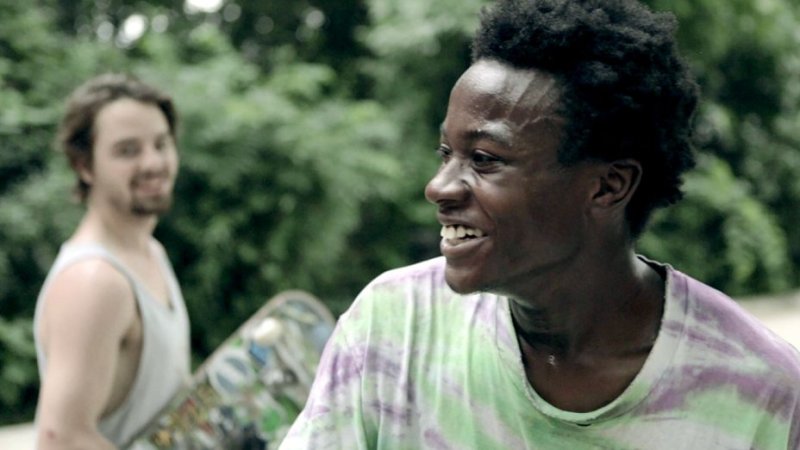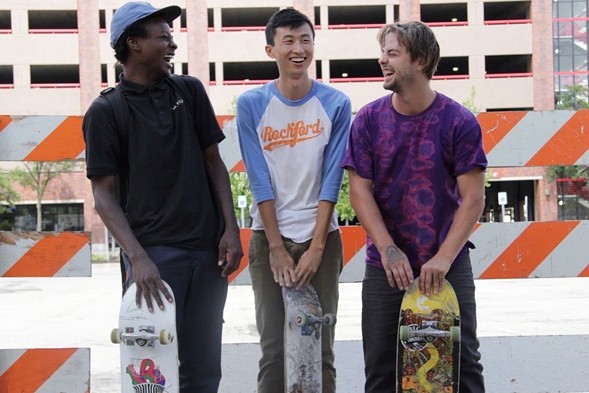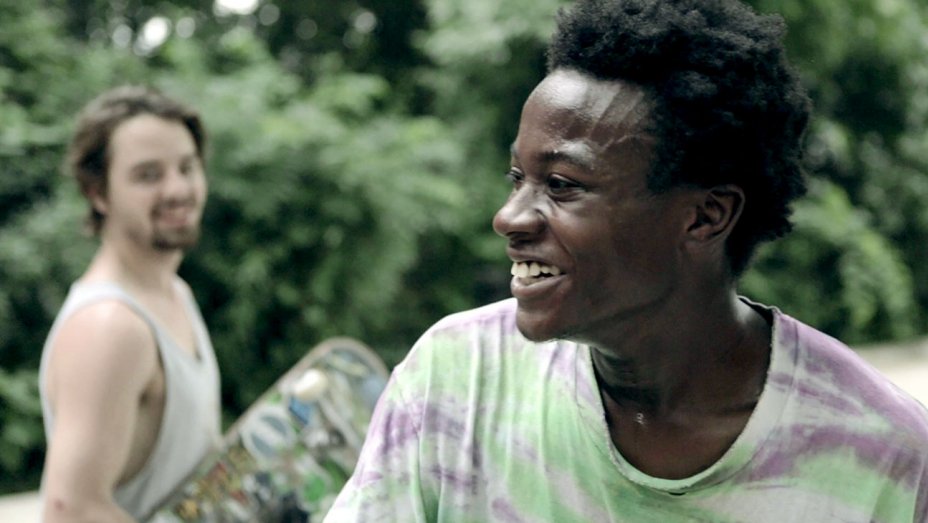By Adam Cook
 Minding the Gap, 2018
Minding the Gap, 2018
One of the most critically acclaimed documentaries of the year, Minding the Gap tells the story of three childhood friends united by their passion for skateboarding. Set in Rockford, Illinois, this coming of age story expands into a portrait of the working class milieu of Rust Belt America, surviving abuse, poverty and the support and solidarity of friendship. Over the years, director Bing Liu had been filming his friends skateboarding, resulting in a gold mine of footage that ended up capturing far more than cool tricks and good times. Minding the Gap is unexpectedly deep and sensitive and is destined to become a classic.
We spoke with Bing about his incredible journey and film, which plays Vancity Theatre select showtimes from September 10–16.
VIFF: Can you tell us about the journey of the film? When did you decide to make a documentary about your friends and the issues that surrounded you?
Bing Liu: Sometime in 2012, when I was 23, I started interviewing people I was skating with about love, hate, heartbreak, family, and growing up–I ended up doing this all over the country. A year in, I went back to my hometown of Rockford and met 16-year-old Keire for the first time and interviewed him and began tracking his journey. Shortly after, I found out Zack, who I’d skated with a few times as a teen, was about to become a father with his girlfriend Nina, and I began following their journey into parenthood. I began editing when I began shooting, but it wasn’t until the final year that I used archival footage I’d shot as a teen and that I sourced from others in Rockford to create a sense of 12-year-long story that’s in the film.

Liu (centre) with Keire Johnson and Zack Mulligan in Minding the Gap
VIFF: How did it evolve from concept to execution?
Liu: At first I was following a lot more skaters from all over the country, but by the end of 2014 I’d started working with Kartemquin Films (known for vérité films like Hoop Dreams and Stevie) and had committed to solely following Keire, Zack, and their friend group in Rockford. As their stories took shape, it was their lives that led the narrative and I didn’t have to depend as much on skateboarding as visuals. The final cut of the film has maybe 15 minutes of skating in it.
VIFF: How did Steve James get involved?
Liu: He saw a teaser for Minding the Gap in 2015, when he was looking to hire Story Directors for his TV series on Starz called America To Me, which follows 12 students and an ensemble of teachers, parents, and administrators as they navigate one of the most racially diverse high schools in the country. We met for half an hour over coffee and he offered me the job a few weeks later. The experience of working with him and the other incredibly talented people on the team was something I’m forever grateful for. After we wrapped on that, in late 2016 my producer Diane Quon and then Kartemquin production manager Nancy McDonald and I were at dinner before a feedback screening at DCTV in NY. Nancy suggested we ask Steve to come on as an EP and, after some discussion, Diane and I agreed it couldn’t hurt. When Steve said yes I remember being elated!
VIFF: Minding the Gap tackles issues of various kinds of abuse, past and present. What was important to you in how to approach the subject matter?
Liu: Nonjudgmental listening and asking from a place of empathy and care were tenets I came to value from past projects where I’d interviewed people about difficult subjects. When I started working with Kartemquin, I went to a lot of other filmmakers’ rough cut screenings and heard Gordon Quinn, one of Kartemquin’s founders, talk a lot about ethics and being aware of power dynamics in documentary–so it’s something I thought about a lot as the stories became more and more vulnerable and intimate. The fundamental question he often brought up and that was especially pertinent for Minding the Gap is “What gives you the right to tell this story?” I’m satisfied with the way I answered the question, I feel like, within the film itself.
VIFF: Part of what is so special about your film is how it demonstrates the importance of talking to our friends, being open, sharing our emotions and vulnerabilities, challenging each other. Could you talk about that?
Liu: I think a lot of that is indirectly learned in adolescence, and it’s because we don’t value or respect adolescents’ emotions. Young people’s emotions are often written off as trite, baby-ish, Millennial, and many other pejoratives that basically communicate the message that your feelings don’t matter and that you just need to grow up. And then we do grow up in our 20’s and our 30’s and we go to school or we get a job and we have kids or we get obsessed with a hobby. But then, as often is the case, life becomes tough and things happen and we don’t know how to deal with emotions. And we spend so much time and are told so many times and are driven so much by avoiding discomfort. But discomfort is where we truly grow in the way that matters. That’s where learning and empathy and understanding comes from.
Minding the Gap opens at VIFF Vancity Theatre Sept 10. Screening times and tickets.
